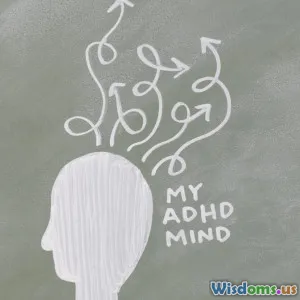
Unlocking the Secrets of Dreaming
7 min read Explore the fascinating world of dreams and brain science, uncovering their impact on our minds and lives. (0 Reviews)
Unlocking the Secrets of Dreaming
Dreams have long captivated the human imagination, serving as a source of inspiration, mystery, and sometimes even fear. Yet, despite their prevalence in our lives, the science behind dreaming remains a complex puzzle. In this article, we’ll explore the fascinating intersection of brain science and dreams, revealing how they affect our cognition, emotions, and overall well-being.
The Nature of Dreams
Dreams occur during the sleep cycle, primarily in a stage known as REM (Rapid Eye Movement) sleep. This stage is characterized by heightened brain activity and vivid dreaming. While the exact purpose of dreaming remains debated among scientists, several theories suggest that dreams play a crucial role in processing emotions, consolidating memories, and enhancing creativity.
Dreaming and Emotional Processing
One of the most compelling aspects of dreaming is its connection to emotional regulation. Research indicates that during REM sleep, the brain processes emotional experiences from the day, allowing individuals to cope better with stress and anxiety. For instance, a study published in The Journal of Neuroscience found that participants who experienced REM sleep after learning a task performed better in stressful situations, suggesting that dreams help us navigate our emotional landscape.
Memory Consolidation
Dreams may also serve an essential function in memory consolidation. As we sleep, our brains sift through and organize memories, transferring information from short-term to long-term storage. This process is particularly active during REM sleep. A study from the Nature Neuroscience journal noted that participants who were deprived of REM sleep exhibited difficulties in recalling learned information, highlighting the significant role dreams play in retaining knowledge.
Creativity and Problem Solving
Dreams are often regarded as a source of creativity, providing unique insights and solutions to problems. Renowned figures like Salvador Dalí and Albert Einstein have credited their dreams as a source of inspiration for their work. Modern studies have shown that the brain's activity during dreaming can foster innovative thinking. A study published in Sleep found that individuals who allowed themselves to dream about a problem were more likely to find creative solutions compared to those who did not.
The Science Behind Dreaming
Understanding the neurobiology of dreaming involves delving into the brain's complex mechanisms. The pons, a structure in the brainstem, plays a critical role in initiating REM sleep and facilitating dream formation. During this phase, neurotransmitters like acetylcholine surge, leading to heightened activity in the cerebral cortex, the area responsible for higher-order thinking and processing sensory information.
The Role of the Amygdala
Interestingly, the amygdala, which is involved in processing emotions, is particularly active during dreaming. This heightened activity may explain why dreams often evoke strong emotional responses, ranging from joy to fear. The interplay between the amygdala and the prefrontal cortex, which is responsible for rational thought, becomes more pronounced during dreams, potentially leading to bizarre or illogical dream scenarios.
Lucid Dreaming: A Conscious Exploration
Lucid dreaming offers a unique perspective on the dreaming process. In a lucid dream, the dreamer becomes aware that they are dreaming and can often manipulate the dream narrative. This phenomenon has garnered interest from both psychologists and neuroscientists, as it provides insights into consciousness and self-awareness. Techniques such as reality checks and mnemonic induction can help individuals achieve lucidity, allowing them to explore their dreams consciously.
Practical Implications of Dreaming
Understanding the science of dreaming can have practical implications for mental health and personal development. By recognizing the emotional processing and creative potential inherent in dreams, individuals can harness this knowledge to improve their waking lives. Here are some practical tips:
- Keep a Dream Journal: Recording dreams can help enhance memory retention and encourage reflection on emotional experiences.
- Practice Mindfulness: Engaging in mindfulness and meditation before sleep may improve emotional regulation and dream recall.
- Explore Lucid Dreaming: Learning techniques for lucid dreaming can empower individuals to confront fears or explore creative ideas within their dreams.
- Prioritize Sleep: Ensuring adequate REM sleep by maintaining a consistent sleep schedule can enhance the benefits of dreaming.
Conclusion
Dreams remain one of the most intriguing phenomena of human experience. The interplay between brain science and dreaming uncovers a wealth of information about how our minds work while we sleep. From emotional processing and memory consolidation to fostering creativity, dreams play a vital role in our cognitive and emotional well-being. By unlocking the secrets of dreaming, we can enhance our understanding of ourselves and our experiences, paving the way for personal growth and creativity. As we continue to explore this enigmatic realm, the potential benefits of our nightly adventures in dreamland are boundless.
Rate the Post
User Reviews
Popular Posts




















